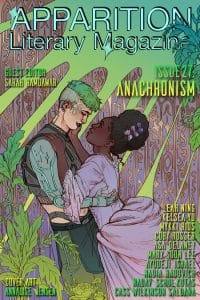Remember, “likability” is a myth. What matters is “relatability”, or, can you understand WHY they do what they do. It’s the why, not the what, that determines how relatable they are.
— Victoria/V.E. Schwab (@veschwab) March 17, 2018
There’s a saying in my family: I love you, but I don’t have to like you.
It’s easy to confuse the protagonist for the good guy. Most of the time it is. The protagonist is the character you root for, the one whose quests and purpose drive the plot. They are the hero of the story, but that doesn’t mean they need to be nice.
Niceness and heroism don’t need to mix. Some of our favorite heroes are anti-heroes. Ones that refuse the call to adventure, only reluctantly joining the call when it serves their interests. Young Adult fiction has made great strides with writing unlikable protagonists. Part of this, I believe, is since the characters are all in their teens, the audience can embrace an erratic protagonist.
V.E. Schwab tweeted about how she writes her characters. Often her books feature anti-heroes, rebels, and thieves. People who do bad things, sometimes for good reasons. What she stressed was relatability above all. Your audience needs to understand why the character is the way they are. Understanding allows your audience to accept an unlikeable protagonist.
There should be an element of kindness to any character, whether protagonist or antagonist. Something that allows the audience to identify and fall in love with you character. One of our editors once received feedback on a story, telling her that the reader had trouble finishing the story because they didn’t like the main character.
The main character wasn’t meant to be liked. She was meant to finish the quest, get the job done, and return to her life. Niceness and likeability seem to be biggest issues with female protagonists. I’ve never heard people say that Harry Dresden, the fast talking warlock form Jim Butcher’s Dresden Files, isn’t nice enough. Men can be snarky, women must be nice. In the Urban Fantasy genre, most main characters, often women, are snarky–not mean, just sarcastic. Every once in a while, you’ll see a Reddit post asking for recommendations for books featuring positive, nice female-centric characters.
Relatability and capability are the most important aspects a protagonist can have. When I think of the person I’d want saving my life, I think of the most hyper-competent person I know. I don’t think of the nicest.
Make your characters relatable. Make them understandable. Make them competent. But don’t for a second think that you have to make them nice.
Featured image: fose.




